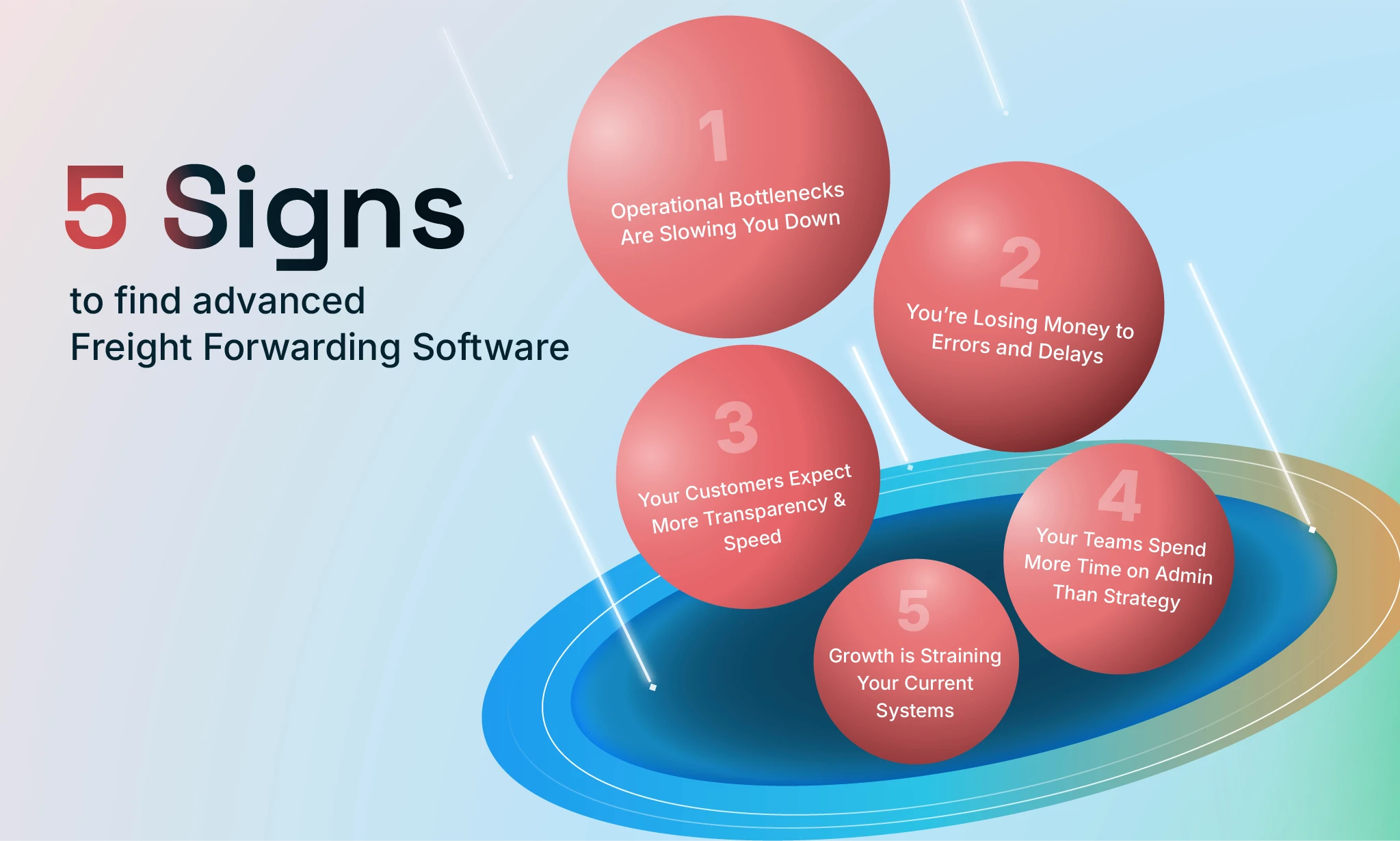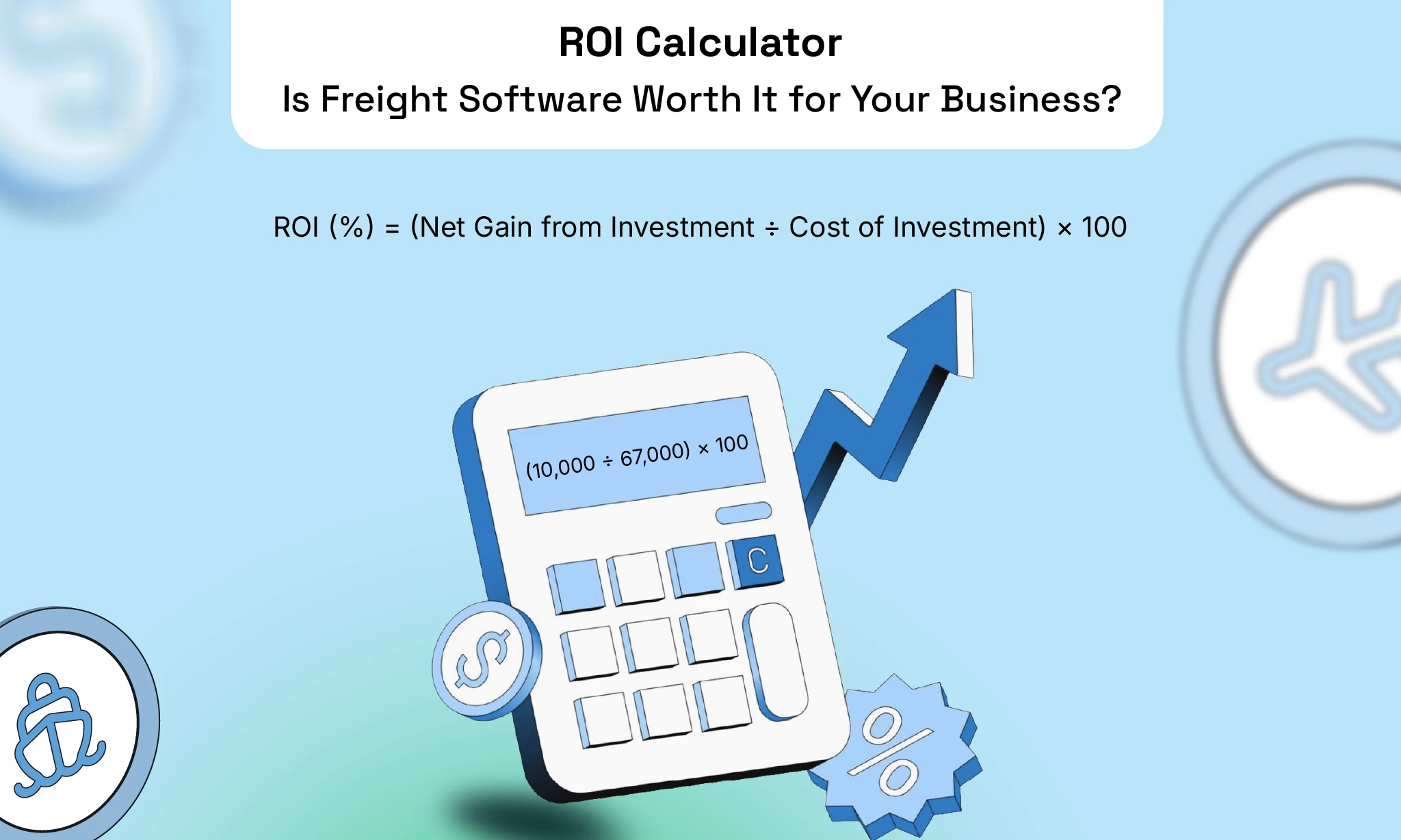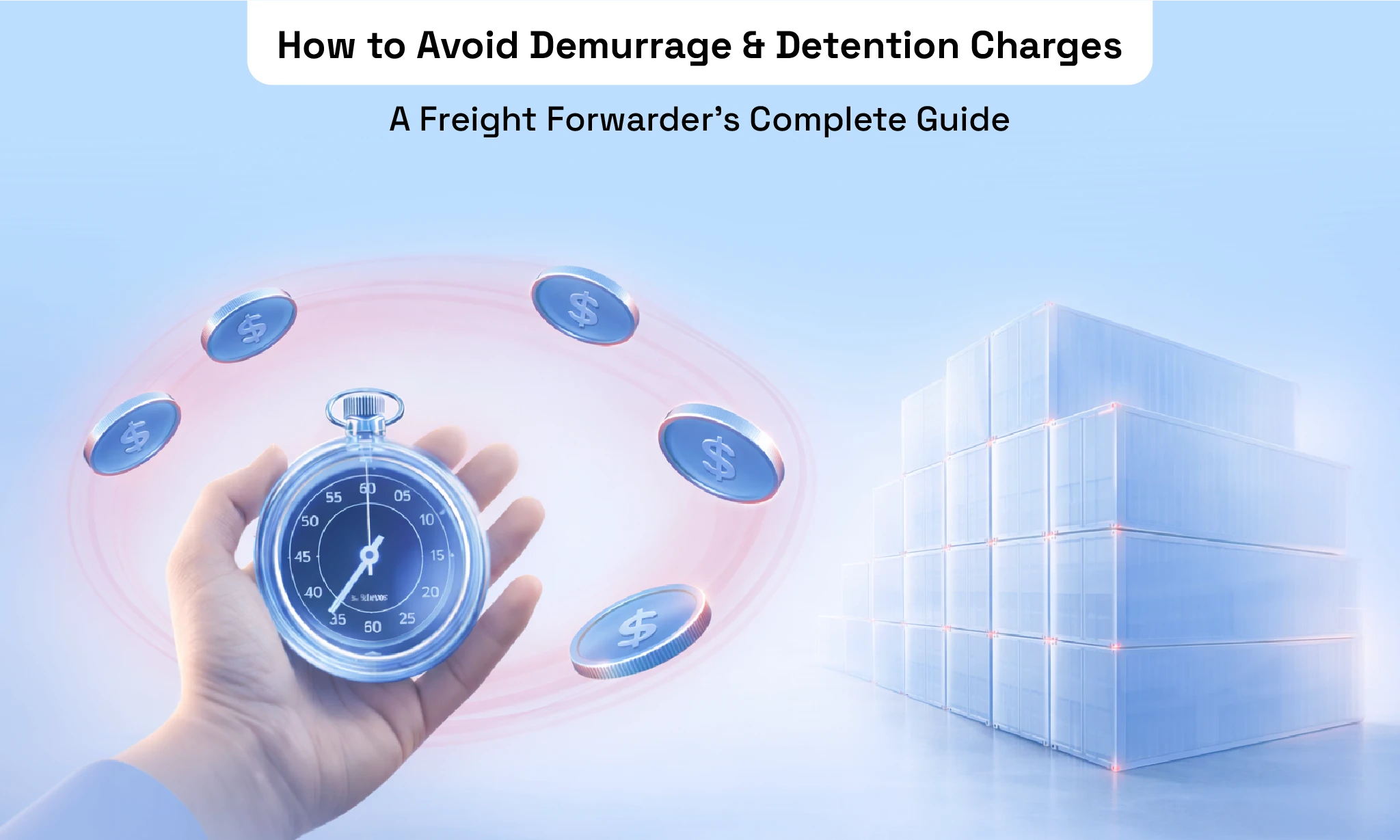Why Modern Freight Forwarders Need CRM In Logistics
Author:
Dharshini Balamurugan
Published On:
Mar 22, 2025
1 min read
Freight forwarding isn’t just about moving cargo, it’s about managing relationships, streamlining workflows, and ensuring every shipment gets from point A to B without a hitch.
But as operations scale and customer expectations rise, keeping track of client interactions, managing quotes, and ensuring smooth communication can feel overwhelming.
Spreadsheets, emails, and sticky notes aren’t going to cut it anymore. That’s where a Customer Relationship Management (CRM) system comes in.
For modern freight forwarders, a logistics CRM isn’t just another tool. It’s the backbone of an efficient, customer-focused logistics business.
The difference between a company struggling to keep up and one that dominates the industry often comes down to how well it manages its customer relationships.
What is CRM in the Logistics Industry?

CRM acts as the mission control center for customer relationships. It centralizes quotes, orders, shipments, financials, and communication so that teams never scramble for information.
A freight-forwarding-specific CRM doesn’t just log interactions, it changes the way forwarders work, with every detail made accessible, organized, and actionable.
What sets a logistics CRM apart is that it can directly integrate with your freight management software or comes in-built in your software, allowing the forwarders can track active and completed shipments, update customers in real-time, manage customs documentation, and streamline financial transactions—all in one place.
No more switching between systems or losing critical information in endless email threads. Everything you need is exactly where you need it.
Data-Driven Customer Management

Freight forwarding involves countless moving parts, and when data is scattered across multiple systems, things slip through the cracks.
A CRM provides a single source of truth for customer interactions, allowing businesses to track shipments, quotes, bookings, invoices, and historical transactions seamlessly.
How it helps with Customer Relationship Management

Real-time access to customer data
Sales, operations, and finance teams always have up-to-date information, ensuring consistency in decision-making and execution. No more digging through files, emails, or scattered spreadsheets.
Automated record-keeping
Every transaction, communication, and quote is logged automatically, reducing manual errors and saving time.
Better decision-making
With data-driven insights, sales and logistics operations teams can anticipate customer needs, personalize service, and make proactive offers to increase client satisfaction.
Personalized customer service
Knowing a client’s full history means teams can provide a seamless, professional experience every time, improving retention and loyalty.
Integration with financial data
Logistics CRMs can track invoicing, payments, and outstanding balances, ensuring smooth financial management and fewer disputes.
Custom reports and analytics
Get deep insights into customer behavior, sales trends, and operational performance, enabling better forecasting and strategic planning.
When your data is centralized and accessible, your business runs smoother, sales teams close deals faster, and customers receive a level of service that keeps them coming back.
Key benefits of Logistics CRM
A logistics CRM software removes bottlenecks that slow logistics businesses down. Whether it’s speeding up quoting, improving response times, or ensuring regulatory compliance, a logistics CRM keeps operations running like clockwork.

Faster quoting & response times
A logistics CRM software enables instant access to past quotes and pricing, so sales teams can respond to customer inquiries in minutes, not hours, increasing the likelihood of closing deals.
Seamless coordination between teams
Sales, operations, and finance all work from the same updated information, preventing miscommunication and unnecessary delays.
Task automation
CRMs assign and track responsibilities, ensuring no task falls through the cracks, allowing teams to focus on high-value activities rather than administrative work.
Pipeline management
Monitor leads, follow-ups, and conversions in real-time to turn prospects into paying customers faster while ensuring sales teams don’t miss critical opportunities.
Regulatory compliance tracking
Avoid penalties and delays by ensuring every shipment has the necessary customs documentation and regulatory approvals, making compliance a smooth process.
Shipping status updates
Customers receive automatic updates on their shipments, reducing the number of inbound calls asking for ETAs and improving customer satisfaction.
With a logistics CRM integrated into your freight management system, there’s no more back-and-forth between departments, no more delays due to missing information, and no more frustrated customers wondering where their shipments are.
Measuring CRM Success in Logistics
A good CRM system doesn’t just store data, it drives measurable results. But how do you know if your CRM is actually working?
Tracking key performance metrics is the best way to evaluate the impact of your logistics CRM investment.

Metrics that matter
Quote-to-booking conversion rates – A logistics CRM software can track how many of your quotes turn into actual shipments. A higher conversion rate means your CRM is helping to close more deals and maximize revenue.
Customer retention & engagement – A well-integrated CRM ensures customers receive consistent service, improving retention rates and increasing repeat business.
Response time improvements – Faster replies to customer inquiries mean fewer lost deals and higher satisfaction, as teams can quickly access the data they need.
Sales cycle efficiency – A CRM should reduce the time it takes for sales reps to convert leads into customers by providing structured workflows and easy access to customer data.
Revenue forecasting accuracy – By analyzing trends in bookings and sales data, a CRM software helps logistics businesses predict future earnings more accurately, enabling better planning and decision-making.
Task completion rates – CRMs allow managers to monitor whether follow-ups, approvals, and deal closures are happening on time, ensuring accountability across teams.
Future of Logistics CRM for Freight Forwarders
The freight forwarding industry is evolving rapidly, and CRMs are evolving with it. Companies that fail to adopt digital solutions risk being left behind.

What’s next?
AI-powered insights – Predictive analytics will help logistics businesses anticipate customer needs, optimize pricing strategies, and improve forecasting.
Deeper integrations – A CRM for logistics will connect seamlessly with freight management platforms, customs compliance tools, and accounting software for a truly unified workflow.
Enhanced automation – From lead generation to customer follow-ups, CRMs will automate more tasks, freeing teams to focus on high-value work.
Multi-channel communication – CRMs will consolidate emails, chat, and call logs so no customer interaction is ever lost, ensuring a consistent customer experience.
Mobile CRM capabilities – Sales teams will have instant access to customer data on the go, improving responsiveness and deal closures.
For freight forwarders looking to stay ahead of the competition, a modern, integrated CRM isn’t just a luxury, it’s a necessity.
Why CargoEZ?
Built for the modern freight forwarder, CargoEZ’s CRM for logistics integrates seamlessly with your logistics operations, ensuring you have full visibility into customer interactions, sales pipelines, and shipment details—all in one place. No more scattered data or missed follow-ups, just a smarter way to manage relationships and drive business growth.
Ready to take your freight operations to the next level?
CargoEZ is built for that.
Conclusion
Freight forwarding is more than just moving shipments; it’s about managing relationships, improving efficiency, and staying competitive in an ever-changing logistics industry.
The right logistics CRM software for freight forwarders helps centralize data, improve communication, and streamline operations, making day-to-day workflows smoother and more efficient.
That’s where CargoEZ comes in.
Frequently Asked Questions (FAQs)
1. Why do freight forwarders need a CRM?
A CRM for logistics helps freight forwarders manage customer interactions, track shipments, automate follow-ups, and streamline sales and operations. It ensures teams have instant access to critical data, improving efficiency and customer satisfaction.
2. How does a CRM improve freight operations?
By centralizing customer and shipment data, a CRM eliminates the need for scattered spreadsheets and endless email threads. It speeds up quoting, enhances team collaboration, and ensures seamless communication with customers.
3. Can a logistics CRM integrate with freight management software?
Yes! A freight-specific CRM software integrates with freight management platforms to provide real-time tracking, automated invoicing, and compliance management—keeping everything in one place.
4. What are the key benefits of using a CRM software in logistics companies?
Faster response times and quoting
Improved sales and customer retention
Automated task management
Centralized customer and shipment data
Real-time visibility into financials and documentation
5. How does CRM automation help freight forwarders?
Automation eliminates repetitive tasks like data entry, follow-ups, and document management. This allows teams to focus on customer relationships and strategic decision-making rather than administrative work.
6. How does CRM for logistics help with compliance in freight forwarding?
A CRM ensures all necessary customs documentation, regulatory approvals, and compliance details are stored, updated, and accessible in one place. This greatly reduces the risk of delays and penalties in the logistics industry.
Don't forget to share this blog!



